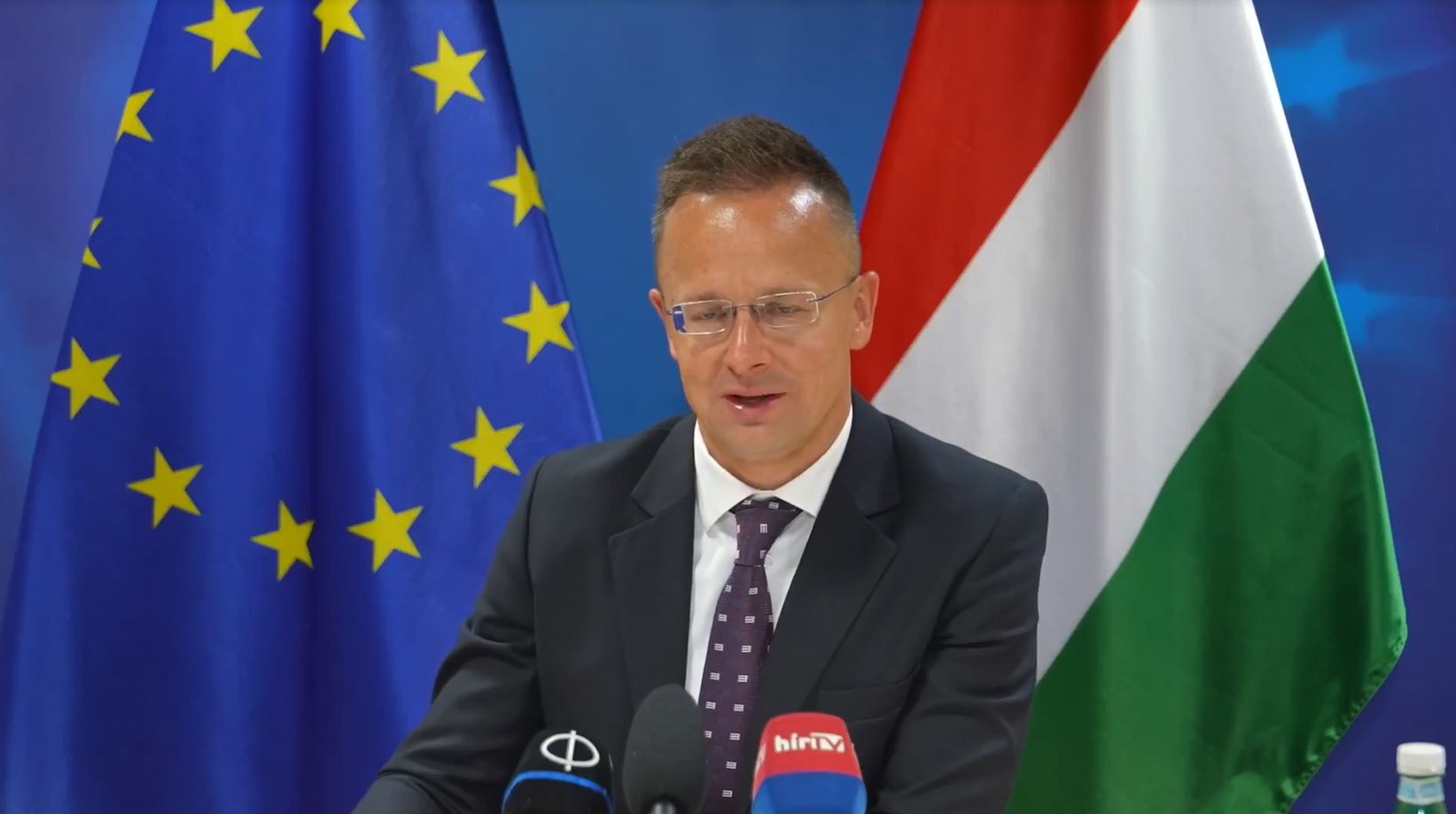Hungarian Foreign Minister Peter Szijjarto has once again declared that Budapest will not support Ukraine’s EU membership, emphasizing that the state is not interested in Moscow’s opinion on this matter. Ukrainian Foreign Minister Andriy Sybiha called for dialogue.
Szijjarto outlined Hungary’s position following a meeting between Ukrainian President Volodymyr Zelenskyy and European Council President António Costa on 5 September.
The politicians’ meeting included discussions about EU accession. During a briefing, Zelenskyy said: “If even Putin does not object [to Ukraine’s EU membership], then the positions of some countries, especially Hungary, really look strange.”
According to the Hungarian diplomat, the Ukrainian president was presenting his own reasoning. “Unlike him, our position is not determined from abroad. We are not interested in what they think in Moscow about Ukraine’s EU membership,” he declared.
The minister added that Budapest is interested in what Hungarians think. Szijjarto referenced a referendum by the Hungarian government, in which the country’s citizens allegedly opposed Ukraine’s membership in the bloc due to supposed threats to farmers, the labor market, and security.
Ukrainian Foreign Minister Andriy Sybiha responded to this statement. He emphasized that Ukraine’s EU accession poses no threat to Hungary.
According to him, the Hungarian farmers mentioned by Szijjarto have never blocked the Ukrainian-Hungarian border, and this year they are actively purchasing Ukrainian corn.
EU accession also does not threaten the Hungarian labor market, since before the full-scale invasion by Russia, Hungary’s government actively invited Ukrainians to work to compensate for the shortage of skilled labor.
Furthermore, the Hungarian community of Zakarpattia also supports joining the bloc.
“Instead of quarrels on Twitter, let’s meet and have a meaningful discussion. I am confident that we can reach pragmatic solutions in good faith — for the sake of our peoples’ common interests of peace and security in a united Europe,” Sybiha emphasized.
Ukraine’s EU accession
All 27 EU member states have already given the “green light” to begin negotiations with Ukraine on joining the bloc, however, Hungary is blocking them.
Last year, Budapest presented Ukraine with a list of 11 demands to unblock the path to the European Union. All of them are aimed at strengthening protection of national minority rights in Ukraine.
The Ukrainian side traveled to Budapest with additional proposals for resolving the entire complex of issues. Ukraine and Hungary then agreed from 12 May to organize regular consultations to work on the stated demands. However, Budapest postponed such consultations due to the detention of Hungarian spies by Ukraine’s Security Service in early May.
Hungarian authorities conducted a so-called consultative referendum in their country regarding Ukraine’s EU membership, following which they announced that 95% of votes were against. Orbán himself claimed that Ukraine’s EU membership would cause “the destruction of the European Union” and war with Russia on EU territory.
Lithuania proposed starting negotiations with Ukraine and Moldova on the first chapter of EU membership without Hungary’s consent. It is proposed that after approval by 26 member states, negotiations would take place at a technical level, de facto, and later an official agreement would be reached legally when all 27 EU states approve it, if Viktor Orbán’s position or that of the entire Hungarian government changes.




